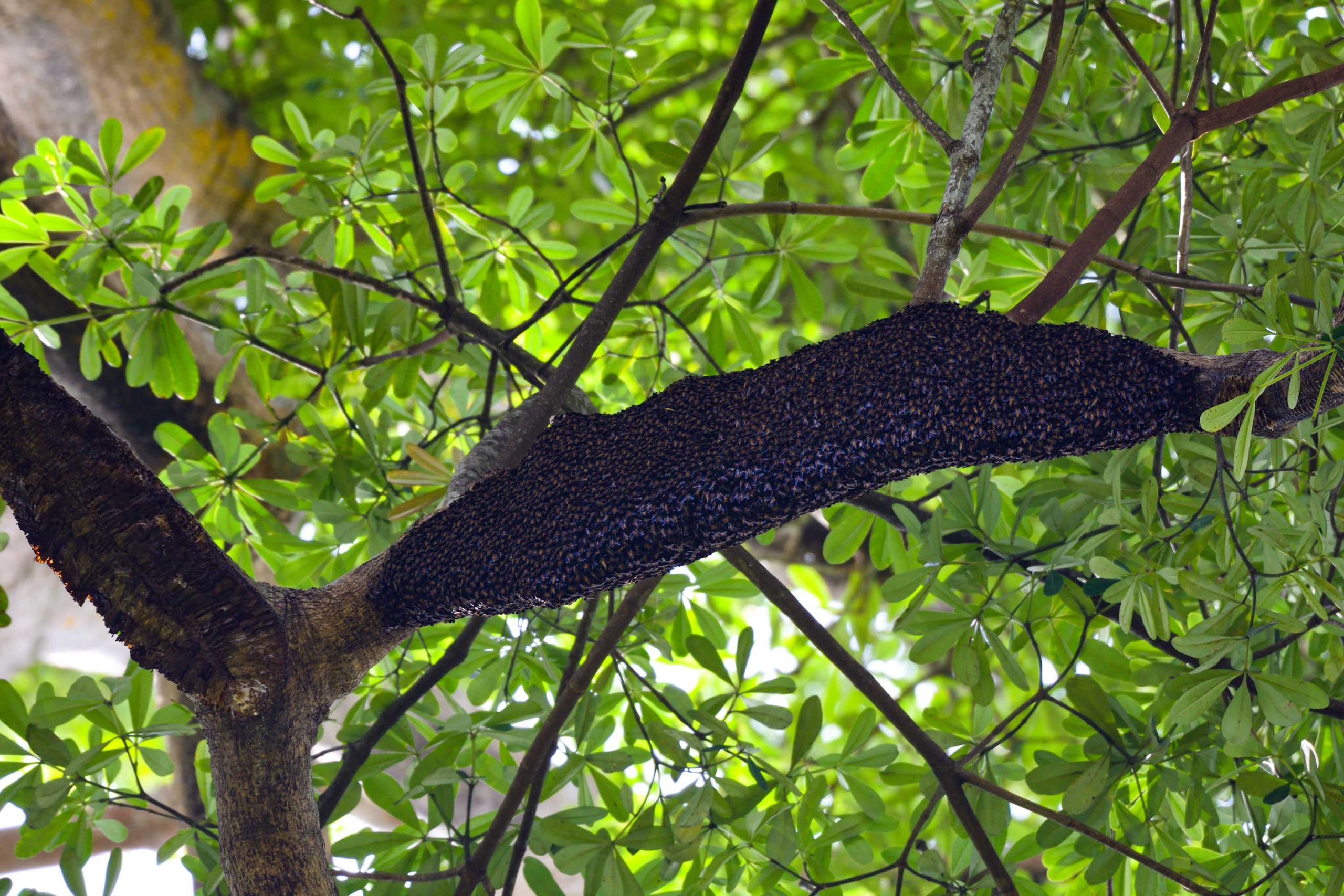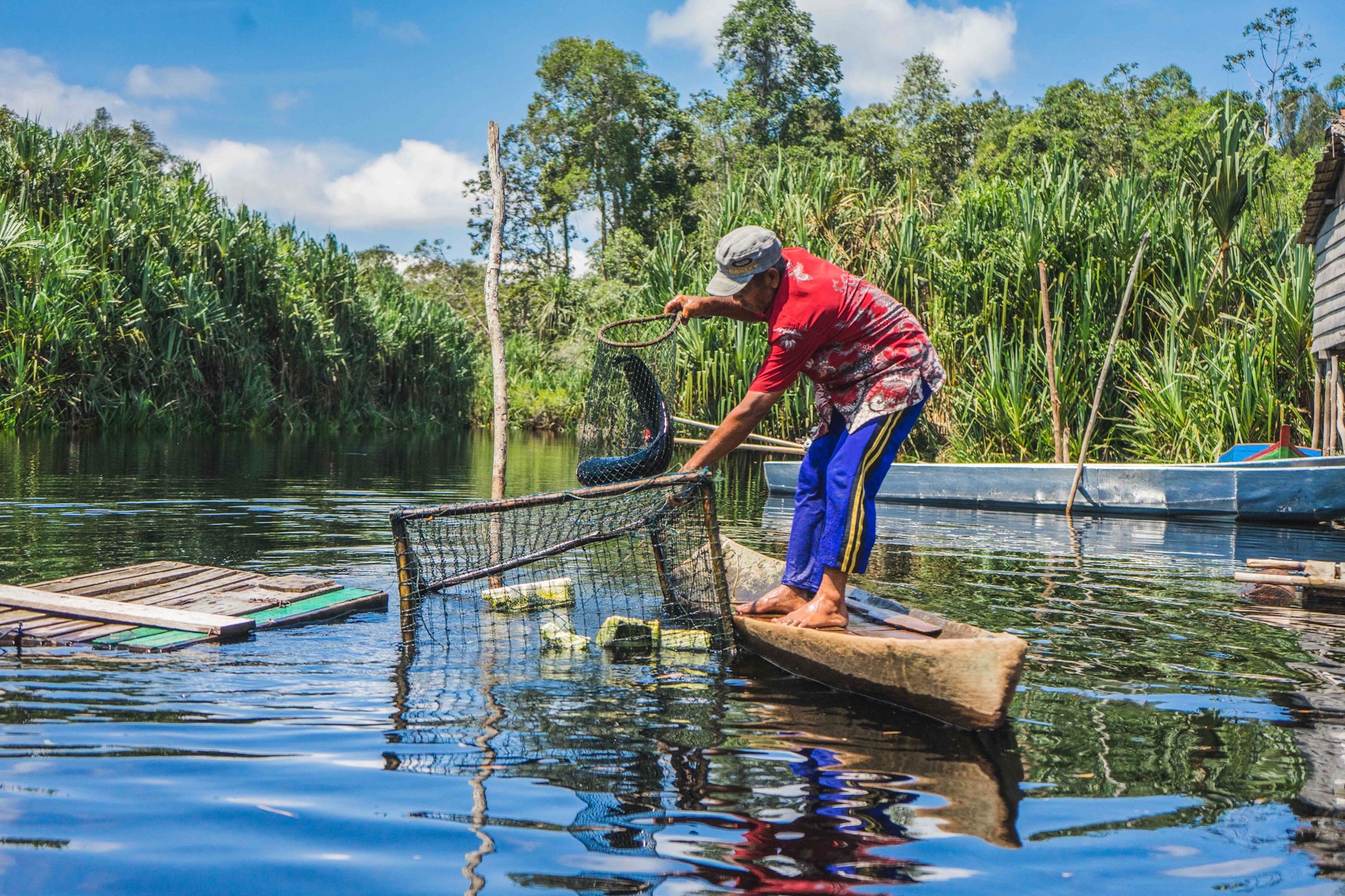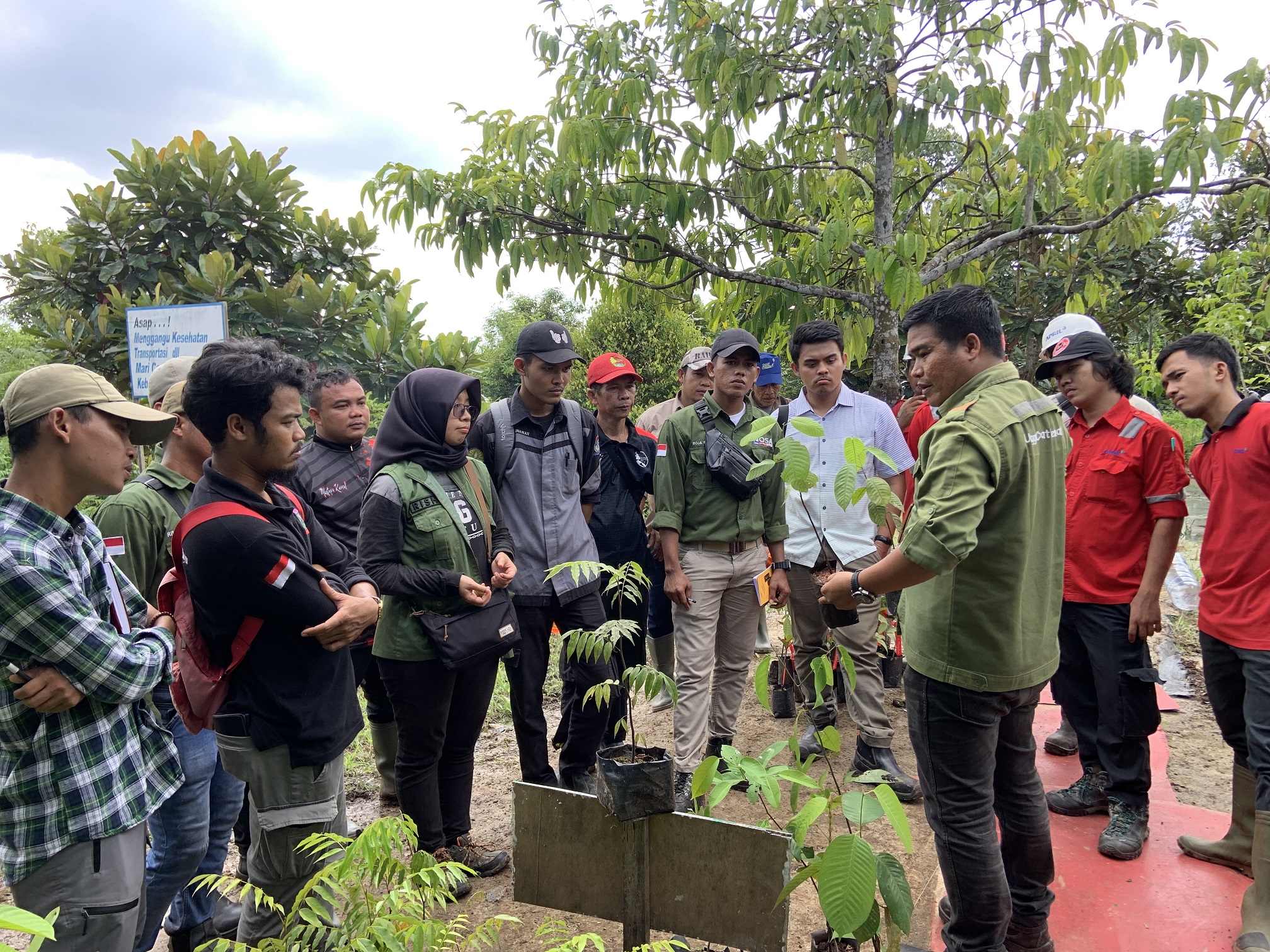July 03, 2023
The Restorasi Ekosistem Riau (RER) concession area is home to spectacular wildlife and abundant natural resources. For the communities who live near these areas, the natural world provides food, shelter, and the means to make a living.
There are approximately 17,000 people living on the Kampar Peninsula, most of whom live in nine villages on the opposite side of the Kampar River from the RER concession area. They represent a mix of different ethnic groups, with Melayu and Javanese the most common.
On Padang Island, about 24,000 people live in 20 villages, which are dotted around the east coast of the island. Riau ethnic groups here include the Akit, as well as Malay, Javanese, Banjarese, Bataks, and Bugis.
In both locations, the mix of backgrounds makes for a diverse cultural melting pot, where music, food, languages, and traditions differ according to family and tribe. But in spite of their many unique qualities, these peoples all have one thing in common: Their dependence on a healthy forest for survival.
Livelihoods rooted in natural resources
For the most part, family incomes in Padang and Kampar are tied to the availability of natural resources. These can be grouped into three main categories: Agriculture (such as rice, maize, betel nut, chili, vegetables, and honey); plantations (sago, coconut, palm oil, and rubber); and freshwater fisheries. Communities also utilize non-timber forest products (NTFPs) from RER, such as freshwater fish and forest honey.
Most of the communities on Padang Island make their living from a combination of agriculture and fishing. A number of rubber, sago, and coconut plantations were set up in the 1960s, and these are also integral to the local economy.

Over on the Kampar Peninsula, community livelihoods vary according to market trends, commodity prices, and the changing of the seasons. For example, from March to May, many people gather forest honey; during other months, they fish along the Serkap river that pass through the RER conservation area. For these livelihoods to be viable, the ecosystem must be healthy. In this way, RER has a direct impact on the physical and financial well-being of local people.
Connected to nature
Communities around RER are faced with a number of challenges. Being dependent on ecosystem services for survival, these people understand that any threats to the natural environment have a direct impact on their own well-being.
With support from RER, fishermen here are committed to sustainability. They endeavor not to disturb or damage the environment, in the hope that the natural world will continue to provide resources for them in return.

This relationship with nature is summed up by a surprising local partnership. Members of the Serkap Jaya Lestari Fisherman Group live and work along the Serkap River, where there is also a thriving wild population of saltwater crocodiles. While some might view these reptiles as a threat to lives and livelihoods, the fishermen here consider them friends.
They believe that, if they treat the ecosystem with respect and take only what they need, the crocodiles will leave them alone. Every once in a while, a fishing trap may get damaged a little, but they see this as a small price to pay for intruding in the crocodiles’ home and sharing their larder.
Here in Riau, fishermen treat crocs with the same respect as their elders. The animals lived here long before people arrived, so fishermen never conduct activities that could harm their wild neighbors.
Forest education, conservation, and development
Working in collaboration with our partners, RER is committed to setting up activities on Padang Island and the Kampar Peninsula that focus on forest education, developing farming skills and improving community welfare for local people in Riau.
RER education efforts help communities understand the importance of conservation and restoration. Last year, as part of RER’s Eco Education program, the team welcomed eight students from SMAN 1 and SMAN 3 Teluk Meranti to the Eco-Research Camp. This tropical peatland science center is an operational hub for the study of animal and plant species that are crucial to preserving ecological equilibrium.

Over on the Kampar Peninsula, RER has been working in collaboration with BIDARA to help local forest communities grow fruit and vegetables. With the right cropping techniques, households can harvest commodities like chili, eggplants, chickpeas, celery, bananas and cassava up to three times a year.
RER also works with fishermen in Riau to raise living standards and ensure no harm is done to nature. In 2021, we renovated huts on the riverbank to protect fishermen from the sun and rain, while also providing new fishing nets and materials for their traps.
Raising awareness, building sustainable futures
To reduce the use of fossil fuels in the Kampar Peninsula, RER installed 18 solar panels so fishermen don’t need to rely on kerosene lamps at night. In addition to providing a cleaner, more sustainable source of energy, this project also helps reduce the risk of forest fires.
This commitment to fire prevention can also be seen in two villages on Padang Island, where the Fire-Aware Community (FAC) program has been educating communities about the risk of fires. Part of APRIL Group’s Fire-Free Village Program (FFVP) initiative, this training helped community members to better understand the dangers of slash-and-burn farming.
Back on the Kampar Peninsular, RER has been working with the University of Riau to improve the livelihoods of local fisherman in six villages. Together, we hosted training on freshwater aquaculture and fish product processing. The two sessions were attended by fishermen and women from the local family welfare group (Pemberdayaan Kesejahteraan Keluarga/ PKK).
On both Padang Island and the Kampar Peninsula in Riau, forest communities live sustainably. Through a combination of ancestral knowledge, collaborations with the private sector, and partnerships with the natural world, these communities are able to utilize and conserve the ecosystem resources they rely on for survival.
With support from RER, the people of Kampar and Padang will continue to live in harmony with nature in Riau; protecting the landscape from fires, developing sustainable livelihoods for their families, and preserving the forest for future generations.